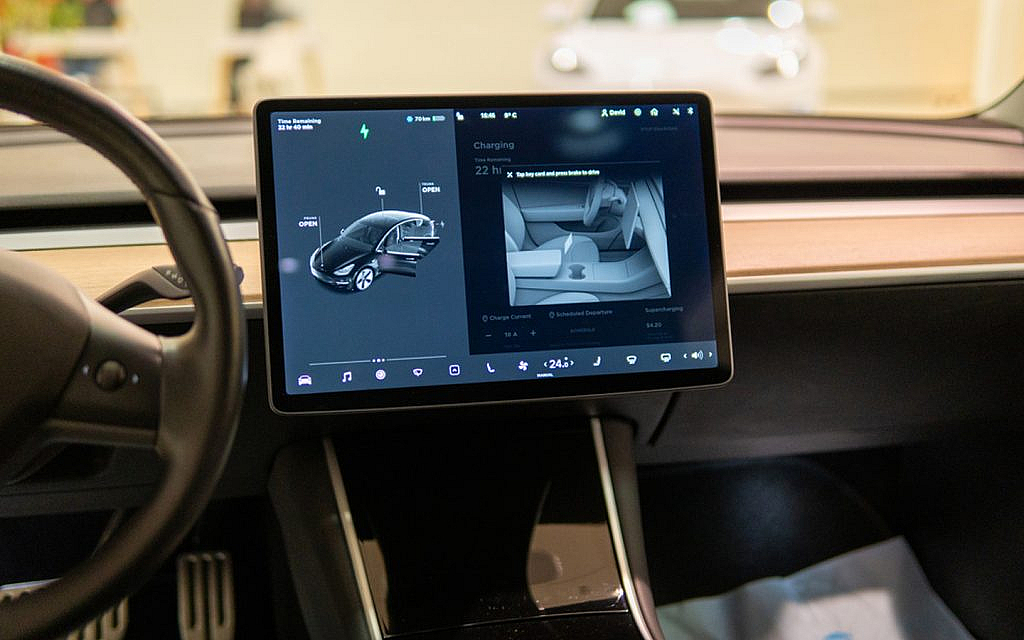
An all-electric automobile is a vehicle that is powered solely by electricity. It is a highly efficient vehicle and also green, which decreases the country's vulnerability to oil supply disruptions. It has the potential for lowering greenhouse emissions. Some models are cleaner that others.
The Nissan Leaf is the most popular all-electric vehicle in the world. It has sold more that a quarter of one million units in the world. In the United States, it was the leading plug-in car sales in the first half of 2014. The Renault Twizy, a plug-in car that was first released in Europe, became one of the top-selling cars in Europe in 2012.

The Tesla Model S, which was launched in the US in 2012, was the best-selling pure electric vehicle in America. It was second in Europe with over 7000 units. It was also the second-most-sold all-electric vehicle in China. It was third in Japan with more then tenkil units.
A number of local governments have offered incentives for all-electric vehicles. However, it is still unclear whether these benefits will be enough to encourage the widespread adoption of these vehicles. Tax credits and subsidies are some of the incentives. It is possible that PHEVs may be more costly than regular cars until battery costs drop.
A PHEV is only all-electric depending upon the size and capacity of the battery pack. Expect to see a decline in battery costs. The all-electric car's cost will be less than a gasoline-powered one, even though it may cost more to start. According to Better Place, a company no longer in existence, the initial cost for a midsize EV would only be $0.02 per miles, and the cost to charge an electric car will be around $0.04 per per mile.
While all-electric cars produce similar emissions as a gas-powered vehicle, some studies show that there are some significant differences. A compact electric car will emit 170 grams of CO2 per km, while an EV of medium size will emit about 11 oz per mile. There are many factors that affect the environmental impact of an all-electric vehicle. One factor is the daily driving distance. This is known as the utility factor. Union of Concerned Scientists released a study that found that a 30 mile range all-electric car would emit about 200 grams of CO2 per mile. This is less than the average emission of a gasoline-powered car, which produces about sixty-three grams of CO2 per mile.

The number of all electric vehicles has increased substantially over the past few years. In the United States, 38.617 light duty all-electric vehicles were sold last year. This is an increase from the 24,157 units sold in 2012. In May 2015 light-duty, all-electric vehicles were expected to surpass 500,000.
FAQ
Is it important which college I go?
It's not true. In terms of getting into the auto industry, there is no distinction between colleges. However, some schools offer better programs than others so if you're looking for something more specialized, look elsewhere.
What qualifications does a truck mechanic need?
You don't have formal qualifications for this role, but you are very experienced working on trucks and engines. Your experience is invaluable as you know how to diagnose problems quickly and efficiently.
Your knowledge of diesel technology will allow you to identify the parts that are required to fix our vehicles.
What are the requirements for an automobile technician?
You must have high school, or GED, and be able to read and write well in English and math. It is also necessary to be able both to read and to write. Before you can start working, you will have to pass a written exam and take a series practical tests.
What is the job description for a mechanic in a car?
For car mechanics, there are three main areas for employment:
-
Automotive repair shops
-
Dealerships
-
Independent garages
Automotive repair shops
This is the place most people begin to consider becoming mechanics. This is the best way to get started. You can either work in a shop run by someone else, or start your business.
If you decide to work at a shop, you'll need to apply to join a union. After being accepted into the union, the union will provide training.
After the training, you will be ready to go and start your job.
If you plan to open your own garage you will need to register with government. After you register, you will be required to meet specific standards.
You will receive a license to run your garage once you have registered.
Your license allows for minor repairs and spare parts sales. It won't allow you to fix major engine problems.
You will be expected to sell spare parts and also offer guidance and advice to customers.
Dealership jobs
Most dealerships employ mechanics who specialize in one area of the car. For example, they might only deal with brakes or only replace tires.
Some dealerships hire general mechanics to handle all aspects of car repair.
These positions often require applicants to undergo specific training before being allowed to work. Employers can then choose the best candidates for their job.
Some dealerships hire students straight out of college. These graduates are already familiar with basic mechanics and can therefore learn about cars.
Independent garages
Independent garages aren't associated with any particular dealership. They tend to be focused on high-quality service.
Independent garages have the ability to afford higher wages, as they aren’t associated with any one company. This means that these jobs are usually more lucrative than those at dealerships.
Independent garages can be just as good places to work, but this does not mean they are better. Many business owners prefer to own their businesses and not delegate the responsibility to others.
It is possible to work long hours, but not have any control over the day.
Additionally, you should expect to earn lower wages if employed by a dealership.
There are many jobs that can be switched between. If you want to work at a dealership, then you simply need to ask your current employer if he would consider hiring you as a mechanic instead.
If you prefer to work in an independent garage, you might consider applying directly to its owner.
It's not always easy to find a job. There are many other factors that can influence your earnings.
It could be the type and cost of labor you use to repair your vehicle.
Can I work as an auto mechanic without a degree? Can I do part-time studies?
While a degree is not required, it does help. Employers are more likely to hire candidates who have completed a complete degree. It shows that you've put the effort in and have done everything possible to succeed.
It doesn't mean that you can't work while you study. Some universities allow students the flexibility to finish coursework during summer vacations and resume their studies later in year. Others let students take classes part-time throughout the year.
What qualifications is required to become an mechanic?
A series of tests is required to be a mechanic. These exams include:
-
A general knowledge assessment
-
A practical examination
-
An apprenticeship test
These tests are designed for you to understand the basic concepts and principles of mechanics before your start as a technician.
Once you've passed these tests, you'll be eligible to work as a mechanic. An apprenticeship is still required. This will involve training in your trade.
You'll need to attend classes and workshops to learn everything you need to know about repairing vehicles. It will be necessary to work alongside experienced mechanics.
You'll need a high level of concentration and attention to detail if you want to succeed as a mechanic. You will need to pay careful attention to every aspect when repairing vehicles.
You'll need patience and persistence to become a successful mechanic. If you don’t love to follow instructions, this may not the right career path.
However, if you love cars or enjoy working on them, you might be happy in this field.
Statistics
- According to the BLS, total auto technician employment is expected to exceed 705,000 by 2030. (uti.edu)
- According to the BLS, the median annual salary for automotive service technicians and mechanics in the United States was $44,050 in May 2020. (uti.edu)
- The U.S. Bureau of Labor Statistics (BLS) reports that the job outlook for automotive service technicians and mechanics is expected to decline by 4% from 2019 to 2029. (indeed.com)
External Links
How To
How to Become an Auto Technician
Automotive technicians provide repair and maintenance services to vehicles. He/she works at automotive shops, garages or service centers. He/she assists customers in fixing their cars, trucks or motorcycles. An automotive technician must have the ability to quickly diagnose and fix problems.
An associate degree from a vocational school is required for anyone who wishes to become an automotive technician. After completing the program, he/she must pass ASE certification. ASE stands to American Society of Mechanical Engineers. The ASE certification test consists of two sections. The first section tests your mechanical skills, while the second tests your practical knowledge. You must attend one of the authorized testing sites to take the test. These locations are available online or through your local automotive dealer.
After passing the exam, a candidate must take a state exam before being licensed as an automobile technician. This process varies depending on where the applicant lives. For example, some states require candidates to attend a training course, while others allow them to study independently. Some states require technicians to be licensed immediately upon receiving their license. Other states wait until they have been employed as automotive technicians for at least six month.
An applicant should apply to a local auto shop in order to start their career as an automotive technician. Most new employees work as apprentices after they have been hired. Apprenticeships last for three years. This is when a student can learn how to do basic repairs such as changing oil, adjusting brakes and replacing tires. Some students learn how to do advanced repairs, such as installing air filters, replacing shocks, repairing engines, and replacing transmission fluids. Schools offer classes during business hours. However, there are some schools that offer evening classes for those who need them.
After completing an apprenticeship, a student becomes a journeyman. Journeymen generally spend four- to five decades learning how to fix major systems like transmissions. They are also taught how to troubleshoot electrical components and remanufacture engines. Many employers prefer to hire Journeymen because they understand the job well.
After passing the exams, candidates may be eligible to open their own shop if they pass all requirements. According to the Bureau of Labor Statistics, nearly 1.7 million automotive mechanic jobs were available in 2010. The Bureau of Labor Statistics predicted that this number would rise by 18% from 2009 to 2020. A candidate who plans to open a shop should expect to spend many thousands of dollars on equipment and supplies.
There are many factors that affect the salary of an automotive technician, such as where they live, their education and experience. On average, a jobless person could expect to earn $20,000 annually. Someone with only a high school diploma could earn around $21,000 per year. A bachelor's degree is equivalent to approximately $24,000 annually. Technicians with bachelor's degrees earned about $27,000 per year. The average annual salary for those with master's degrees was $32,000. Salaries are increasing so that a professional earning less than $30,000 could expect to make $40,000 in a few years.